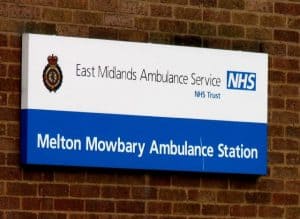Empowering patients will cut medication errors, says watchdog
pharmafile | August 11, 2006 | News story | | patients
An NHS watchdog has urged renewed efforts to cut the number of drug errors by improving prescribing and dispensing in hospitals.
The Healthcare Commission made the plea after reviewing medicines management practices in 173 acute hospital trusts in England, finding most were 'adequate', but only 18 were 'excellent', and 12 were judged to be 'weak' in the area.
The trusts were measured on 21 areas covering a range of issues, from the percentage of patients who had had a comprehensive medicines review to whether patients had a complete medicines record for their stay in hospital.
"There is plenty of good news on medicines management. Overall, most trusts seem to be getting the basics right when it comes to managing medicines safely, although it is clear that some organisations are better than others," said Anna Walker, the Commission's Chief Executive.
She added, however, that most hospitals still had some way to go in involving patients in decisions about medicines in particular.
Trusts need to do more talking to patients about their medicines and their potential side-effects. They need to make sure patients feel empowered to discuss any concerns. Hospitals also need to do all they can to minimise risks, particularly when giving injections or using intravenous drugs.
The Commission says that pharmacists should have a significant role in advising hospital staff and patients about drugs and their management to prevent errors occurring.
In the 12 months to July 2006, there were more than 40,000 medication errors in hospitals in England and Wales. These covered a variety of issues, including giving the wrong amount or type of drugs, but, fortunately, the vast majority of mistakes do not cause harm.
Pharmacists' body The Royal Pharmaceutical Society of Great Britain welcomed the report but said more resources were needed for pharmacy services.
Professor Ray Fitzpatrick, Chairman of RPSGB Hospital Pharmacist Group, said: "The review highlights the valuable role pharmacists play in hospital medicines management. Medicines are used in nearly every healthcare intervention in hospital, and for many years, hospital pharmacists have been pressing for medicines management to be recognised as an important part of a Trust's safe system of working."
Making medicines management part of a Trust's overall performance rating supports this view. However, in the interest of patient safety, quality of care and effective use of resources, the NHS must invest in hospital pharmacy services if all trusts are to achieve the best standards.
Maria Nyberg, Policy Manager at the NHS Confederation said the publication was a step forward in identifying problem areas in patient safety, and backed the Commission's call for greater communication with patients.
"The only way the service will achieve real improvements for patients is by being frank about the problems and challenges that it faces," she said.
"The more meaningful information provided to patients and the public about the performance of their local hospital and health services, the better because in a world of increased choice for patients this can only be a good thing."
The report highlighted patients with Parkinson's disease as a prime example of where empowering patients can be very beneficial.
Hospital ward staff routinely take on the administration of drugs from patients, which the Commission says is often appropriate, but it urged for more patients to be given the choice of remaining in control of their medication.
For patients with Parkinson's disease, it says the timing of medication is vital, and the patients are often best at managing their medication in a hospital environment and prefer to do so.
The report found 69% of trusts said patients could not self-administer on at least a fifth of wards. Trusts need to identify the patients who should have the option to administer medicines and allow them to do so.
The medicines management review is the first in a series of ratings which feed into the NHS's overall performance ratings, the annual health check, which will be published in October. Each NHS trust will be given a rating on two parts one on quality and one on use of resources.
Related Content

NHS England threatened legal action against Oxford University hospitals trust
NHS England threatened to sue Oxford University hospitals (OUH) NHS trust after they objected to …

Recruitment and retention: How can we do better?
In pharma R&D, data is king, but consistent struggles with patient retention is undermining the …

Learning to trust the patient’s voice
Through digital media and technology, the patient’s voice is only growing in strength and it …








